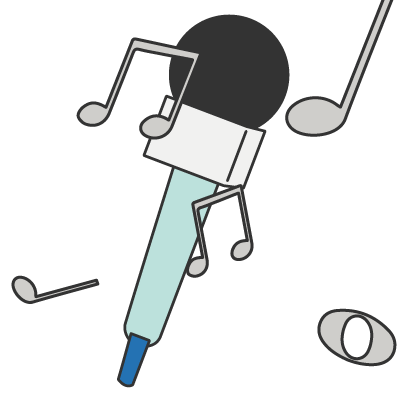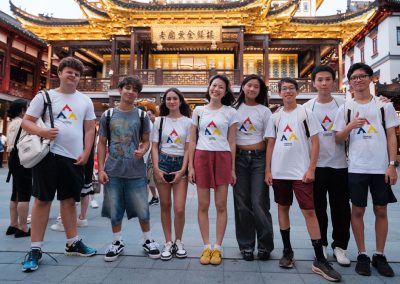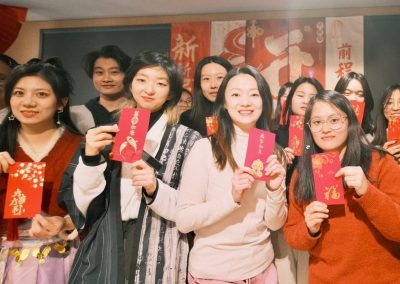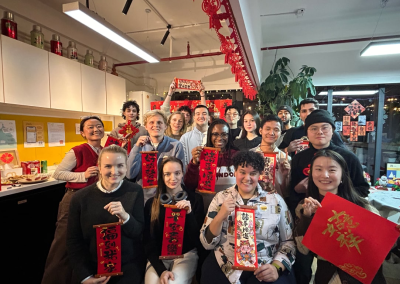In our previous posts, we’ve looked at the New HSK 1 and the New HSK 2. Let’s continue exploring the new HSK and look at the new HSK3 Vocabulary Word List for Level 3 in 2021.
For a free HSK3 PDF download, scroll down to the bottom👇
New HSK 3 Word List Infographic


New HSK 3 Word List: Vocabulary Analysis
The new HSK 3 has 973 words.
The old HSK 3 only had 300 words.
Big change: out of those 300 words, only 57 stay in the new HSK 3! The remaining 916 words are totally new — mostly coming from old HSK4, 5, 6, or appearing for the first time ever.
| NEW HSK WORDS | OLD HSK WORDS | |
| TOTAL | 973 | 300 |
| COMING FROM THE OLD HSK | 57 | |
| COMPLETELY NEW | 916 |
HSK 3 Word List: What’s New?
Well… it might sound dramatic, but almost everything is new in the new HSK 3.
Most words are new, and they all come from higher levels — the old HSK 4, 5, and 6.
The general impression of the word list is that it’s very abstract. There are over 100 abstract nouns, over 150 abstract verbs, over 80 adverbs; so by reaching this level, you will be able to express your thoughts & ideas about quite advanced & complex subjects.
We’ll look at some specific examples later in the article.

What Happened to the Old HSK 3 List?
Almost all the words from the old HSK 3 list (206 out of 300 words, or 2/3 of the whole list) have been moved to lower levels of HSK1 and HSK2. Some other 40 words went to HSK 4, 5, and 6, but only because the characters they are made of are not very common. Here’s a breakdown of all the changes:
– 57 words from the old HSK3 remained in the new HSK3;
– 58 words were moved to the new HSK 1;
– 148 words were moved to the new HSK 2;
– 29 words were moved to the new HSK 4, including 地方 (dìfāng, “place”) — who knows why;
– 9 words were moved to HSK 5: 鼻子 (bízi, “nose”), 聪明 (cōngmíng, “smart”), 蛋糕 (dàngāo, “cake”), 耳朵 (ěrduo, “ear”), 邻居 (línjū, “neighbor”), 皮鞋 (píxié, “leather shoes”), 瘦 (shòu, “slim/skinny”), 饮料 (yǐnliào, “drinks”), 熊猫 (xióngmāo, “panda”);
– 1 word was moved to HSK 6: 聊天 (liáotiān, “to chat”);
– 1 word was moved to HSK 7-9: 刮风 (guāfēng, “to blow (of wind));
– 1 word was removed: 数学 (shùxué, “maths”, and other subjects such as “chemistry” disappeared from the HSK list too).

HSK3 Word List: New Topics
With over 900 new words added, no wonder that new topics have appeared in the new HSK 3 list. We’ve tried to create our own categories to get a sense of what’s going on — and you can do the same to memorize the words more easily, and create stories and dialogues to practice them.
The new vocabulary topics in HSK 3 include:
- International relations & politics;
- Business & trade;
- Environment;
- Jobs & occupations;
- Clothing;
- Food & drinks;
- Emotions & feelings;
- Cities, villages & life of local people;
- Law & order;
- Life & death;
- New location & direction nouns;
- More words to describe people as individuals and as groups;
- Show business: music, news, TV & cinema, performing arts;
- Sports;
- Technology & internet;
- Travel;
- Nature & animals.
That is a LOT of new topics!
Not all the words will be equally useful in real life, but since the new HSK follows the principle of building as many possible combinations with the most common characters as possible, the word choice can almost always be explained by that principle.

HSK 3 Word List: Examples
Example 1: New HSK 3 Vocabulary — Abstract Nouns
Over a hundred abstract nouns appear in the new HSK 3 list. Here are a few examples — of the nouns that are extremely useful, common, and appearing in everyday speech:
| ABSTRACT NOUNS IN THE NEW HSK 3 | ||||
| CHINESE | PINYIN | ENGLISH | PART OF SPEECH | NEW? |
| 变化 | biànhuà | change; to change | (verb; noun) | |
| 成功 | chénggōng | success; to succeed | (noun) | NEW |
| 程度 | chéngdù | degree; extent | (noun) | NEW |
| 方式 | fāngshì | way; method | (noun) | NEW |
| 关系 | guānxi | relationship; relations | (noun) | |
| 过程 | guòchéng | process | (noun) | NEW |
| 经验 | jīngyàn | experience | (noun) | NEW |
| 理由 | lǐyóu | reason; excuse | (noun) | NEW |
| 目标 | mùbiāo | target; goal; objective | (noun) | NEW |
| 内容 | nèiróng | content | (noun) | NEW |
| 情况 | qíngkuàng | situation; circumstances | (noun) | NEW |
| 区别 | qūbié | difference | (noun) | NEW |
| 任务 | rènwu | task; assignment | (noun) | NEW |
| 数量 | shùliàng | quantity | (noun) | NEW |
| 主意 | zhǔyi | idea | (noun) | |
Notice that some of these nouns can work as verbs, too.
Example 2: New HSK 3 Vocabulary — Abstract Verbs
Over 130 abstract verbs appear in the new HSK 3 list. Many of them are synonyms — so you might want to learn them in context, and pay extra attention to the examples of use. Such verbs are great in any language though, as they can help you convey important ideas. Here are some indispensable abstract verbs:
| ABSTRACT VERBS IN THE NEW HSK 3 | ||||
| CHINESE | PINYIN | ENGLISH | PART OF SPEECH | NEW? |
| 发生 | fāshēng | to happen; to occur | (verb) | NEW |
| 发展 | fāzhǎn | to develop; development | (verb; noun) | |
| 继续 | jìxù | to continue | (verb) | NEW |
| 结束 | jiéshù | to end; to finish | (verb) | |
| 解决 | jiějué | to solve | (verb) | |
| 经历 | jīnglì | to experience; experience | (verb; noun) | NEW |
| 决定 | juédìng | to decide | (verb) | |
| 开始 | kāishǐ | to begin; to start | (verb) | NEW |
| 理解 | lǐjiě | to understand; to comprehend | (verb) | NEW |
| 支持 | zhīchí | to support | (verb) | NEW |
| 调整 | tiáozhěng | to adjust | (verb) | NEW |
| 注意 | zhùyì | to pay attention; take something seriously | (verb) | NEW |
Notice that some of these verbs can also work as nouns.
Example 3: New HSK 3 Vocabulary — Advantages & Disadvantages
Other topics are less extensive, they just include a few words. But there is a sense of accomplishment that comes with learning short lists. 🤩 Take, for instance, vocabulary related to strong & weak points — just 6 words:

| WORDS DESCRIBING ADVANTAGES & DISADVANTAGES IN THE NEW HSK 3 | ||||
| CHINESE | PINYIN | ENGLISH | PART OF SPEECH | NEW? |
| 长处 | chángchù | forte; one’s strong/good point | (noun) | NEW |
| 短处 | duǎnchù | shortcoming; one’s weak point | (noun) | NEW |
| 缺点 | quēdiǎn | disadvantage(s) | (noun) | NEW |
| 优点 | yōudiǎn | advantage(s) | (noun) | |
| 优势 | yōushì | advantage(s) | (noun) | NEW |
| 所长 | suǒzhǎng | what one is good at; one’s strong point | (noun) | |
Example 4: New HSK 3 Vocabulary — Clothing
Some new words related to clothing appear in the new HSK 3, too.
Notice the trend: if new characters appear in the list (e.g. 衬 “shirt”, 裤 “pants”), they make sure to add as many common words with these characters as possible.

| CLOTHING-RELATED VOCABULARY IN THE NEW HSK 3 | ||||
| CHINESE | PINYIN | ENGLISH | PART OF SPEECH | NEW? |
| 衬衫 | chènshān | shirt; blouse | (noun) | |
| 衬衣 | chènyī | shirt; underclothes | (noun) | NEW |
| 短裤 | duǎnkù | shorts | (noun) | NEW |
| 服装 | fúzhuāng | dress; clothing | (noun) | NEW |
| 裤子 | kùzi | pants | (noun) | |
| 裙子 | qúnzi | skirt; dress | (noun) | |
| 上衣 | shàngyī | coat | (noun) | NEW |
| 衣架 | yījià | clothes hanger | (noun) | NEW |
| 皮包 | píbāo | handbag; leather bag | (noun) | NEW |
Example 5: New HSK 3 Vocabulary — Music & TV
New vocabulary has been added to introduce Chinese learners to China’s media industry: news, radio, TV, cinema, performing arts & music. Here’s an example of words in the music industry, to help you talk about your favorite TikTok and DouYin stars and discuss singers & bands on Weibo:

| MUSIC-RELATED VOCABULARY IN THE NEW HSK 3 | ||||
| CHINESE | PINYIN | ENGLISH | PART OF SPEECH | NEW? |
| 歌迷 | gēmí | fan (of a singer) | (noun; verb) | |
| 歌声 | gēshēng | singing voice; the sound of singing | (noun) | NEW |
| 歌手 | gēshǒu | singer | (noun; verb) | NEW |
| 录音 | lùyīn | recording; to record sound | (noun; verb) | NEW |
| 听众 | tīngzhòng | audience | (noun) | NEW |
| 演唱 | yǎnchàng | to sing (in a performance) | (verb) | NEW |
| 演唱会 | yǎnchànghuì | concert | (noun) | NEW |
| 演出 | yǎnchū | show | (noun) | NEW |
| 乐队 | yuèduì | band | (noun) |
|
| 收听 | shōutīng | to listen to (a radio broadcast) | (noun) | NEW |
| 收音机 | shōuyīnjī | radio set | (noun) |
|

| MOVIES & TV-RELATED VOCABULARY IN THE NEW HSK 3 | ||||
| CHINESE | PINYIN | ENGLISH | PART OF SPEECH | NEW? |
| 导演 | dǎoyǎn | director | (noun; verb) | |
| 电视剧 | diànshìjù | TV series | (noun) | NEW |
| 电视台 | diànshìtái | TV station | (noun) | NEW |
| 观看 | guānkàn | to watch; view | (verb) | NEW |
| 观众 | guānzhòng | audience | (noun) | NEW |
| 广播 | guǎngbō | broadcast; to be on the air | (noun; verb) | NEW |
| 连续剧 | liánxùjù | TV series (with many seasons) | (noun) | NEW |
| 拍 | pāi | to shoot (a film) | (verb) | NEW |
| 演员 | yǎnyuán | actor | (noun) |
|
| 影视 | yǐngshì | movies and television | (noun) | NEW |
| 收看 | shōukàn | to watch (a TV program) | (verb) |
|
Example 6: New HSK 3 Vocabulary — Trade & Business-Related Nouns & Verbs
Finally, plenty of new vocabulary has been added on the topics of international relations, business & trade. It touches upon different areas — from day-to-day work tasks to discussing international business, strategy and operations.

| BUSINESS-RELATED NOUNS IN THE NEW HSK 3 | ||||
| CHINESE | PINYIN | ENGLISH | PART OF SPEECH | NEW? |
| 合作 | hézuò | collaboration; to work together | (noun; verb) | |
| 交易 | jiāoyì | business deal; transaction | (noun) | NEW |
| 进步 | jìnbù | progress; to make progress | (noun; verb) | NEW |
| 经济 | jīngjì | economy; economic | (noun) | NEW |
| 市场 | shìchǎng | market | (noun) | NEW |
| 商业 | shāngyè | commerce; trade; business | (noun) | NEW |
| 生意 | shēngyì | business; trade (as in “to do business) | (noun) | NEW |
| 风险 | fēngxiǎn | risk; hazard; danger | (noun) | NEW |
| 工资 | gōngzī | salary; pay | (noun) | NEW |
| 会议 | huìyì | meeting | (noun) | NEW |
| 老板 | lǎobǎn | boss | (noun) | NEW |
| 对方 | duìfāng | the other side; the other person involved | (noun) | NEW |
| 对手 | duìshǒu | opponent; rival; competitor | (noun) | NEW |
| 海关 | hǎiguān | customs | (noun) | NEW |

| BUSINESS-RELATED VERBS IN THE NEW HSK 3 | ||||
| CHINESE | PINYIN | ENGLISH | PART OF SPEECH | NEW? |
| 创新 | chuàngxīn | to innovate; innovation | (verb; noun) | |
| 创业 | chuàngyè | to start a business; entrepreneurship | (verb; noun) | NEW |
| 发明 | fāmíng | to invent; invention | (verb; noun) | NEW |
| 经营 | jīngyíng | to manage, to run; operation, management | (verb) | NEW |
| 开发 | kāifā | to develop; to exploit (a resource) | (verb) | NEW |
| 开业 | kāi yè | to open a business; to open (for business) | (verb phrase) | NEW |
| 负责 | fùzé | (to be) in charge of; responsible for | (verb) | NEW |
| 生产 | shēngchǎn | to produce | (verb; noun) | NEW |
| 制造 | zhìzào | to make; to manufacture; to produce | (verb) | NEW |
| 制作 | zhìzuò | to make; to manufacture | (verb) | NEW |
| 安排 | ānpái | to arrange; arrangement | (verb; noun) | NEW |
| 办理 | bànlǐ | to handle | (verb) | NEW |
| 处理 | chǔlǐ | to deal with; to handle | (verb) | NEW |
| 管 | guǎn | to control; to manage; to run | (verb) | NEW |
| 管理 | guǎnlǐ | to manage; management | (verb; noun) | NEW |
More Categories
There are many more categories in the new HSK 3 list. We encourage you to create your own and learn the words this way — it’s much easier to memorize things in context!

New HSK 3 Word List: PDF Download
[et_bloom_inline optin_id=”optin_3″]
Note: This list is an extremely valuable piece of content and we want to protect it. Other schools and websites have been copying our HSK lists and pretending they wrote/made them themselves. So we are asking for your email for security measures. Thanks for understanding!
Further Reading
To learn more about other HSK levels and download free PDF word lists, read these posts:
For more news about the new HSK, make sure to check these articles:
For more information on the HSK, from the different levels, the benefits and the time it takes to complete, have a read here!














